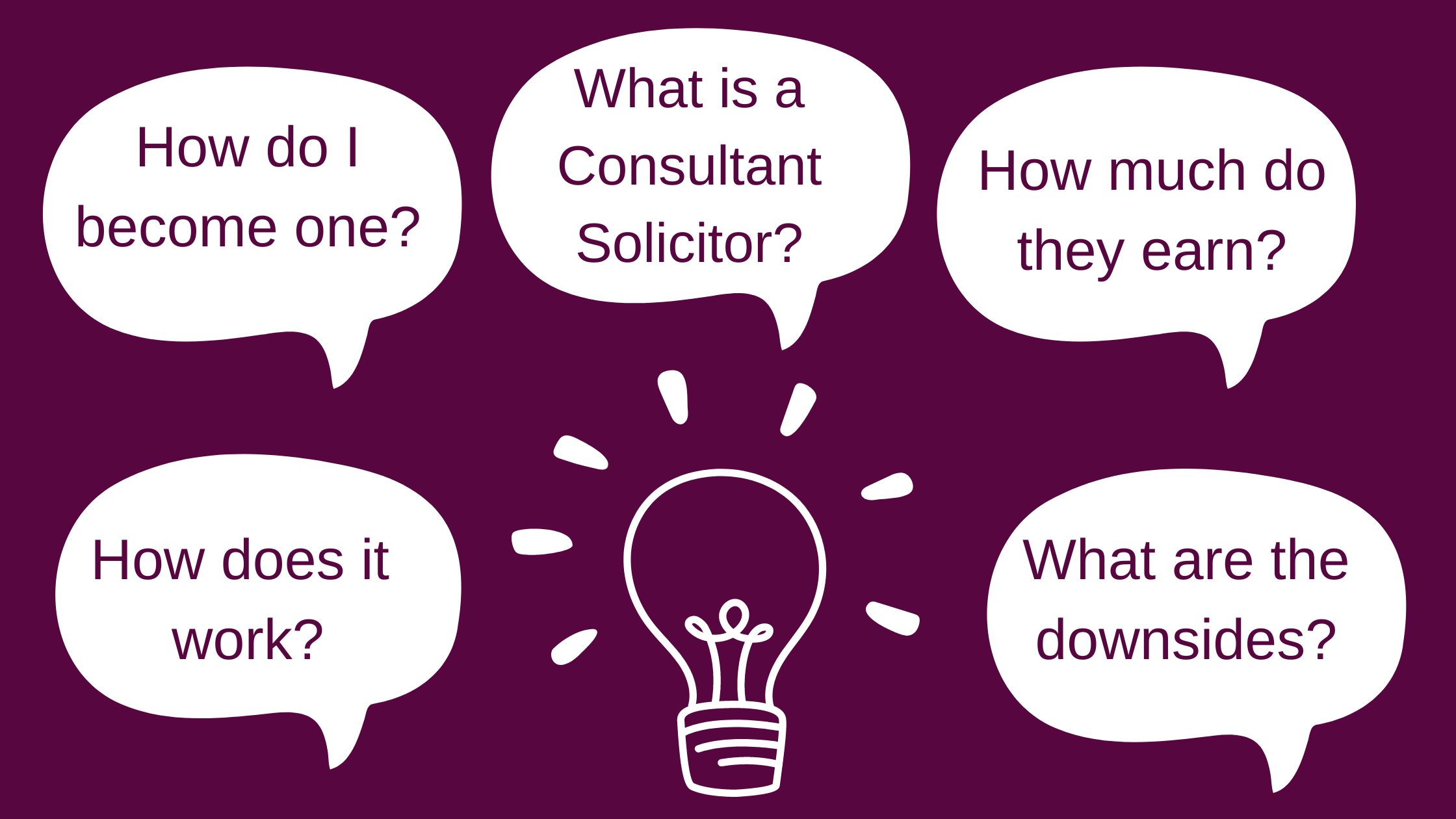What is a Consultant Solicitor?
A Consultant Solicitor is usually a self-employed solicitor who works through their limited company, a Personal Service Company (PSC), which contracts with a firm of solicitors to supply the solicitor’s services to clients. It is not the same as a Freelance Solicitor, which is another way of working that was introduced in November 2019. Freelance Solicitors do not work through a firm of solicitors, they engage directly with their clients and they receive the fees directly from their clients too.
Consultant Solicitors practice under the umbrella of a firm of solicitors which provides the Professional Indemnity insurance and operational infrastructure under which the Consultant engages with clients. When the work has been done, and the client has paid the firm, the firm pays the PSC the agreed fee share for the Consultant’s work.
How do Consultant Solicitors work?
As they are self-employed, Consultants work very flexibly. There are rarely any set hours or chargeable time targets imposed on them by the firm they work with. They can work when, where, and how they like. They are unlikely to work in the firm’s office, although some may choose to, which means they are totally remote and self- managed. This may mean they work in the evenings or at weekends, in order to free up time during the day in which to do something else altogether.
Consultant solicitors can also choose the clients that they work for and agree their own charging structure. They run their PSCs as a business, structuring their fees according to the work that they want to do and the income they want to earn.
Why become a Consultant Solicitor?
Most solicitors become consultants for the flexibility and autonomy. Many consultants have worked in private practice as either employed solicitors or partners, and have decided they want to simplify their working lives without giving up their profession and whilst still working for a regulated law firm.
Because of the freedom afforded a Consultant solicitor, it can be very liberating only practising the law after years of navigating the politics of a law firm. Consultants rarely get involved with the running of the firm that they work with, which gives them a lot more time to do other things. By taking management or internal commitments out of their working day, Consultant solicitors can either do more fee-earning work or spend less time working altogether. Parents particularly enjoy working as Consultants, as they no longer have to commute to an office or juggle their home lives around the traditionally structured working day.
How much does a Consultant Solicitor earn?
In many ways that depends on how much they want to earn. When a Consultant Solicitor has completed some work for a client, the firm raises its invoice to the client in the usual way. Once the client has paid the firm, the Consultant Solicitor’s PSC is remunerated on a fee share basis. The PSC will then pay the Consultant a salary and/or a dividend, depending on which is most tax efficient.
That means that the Consultant can decide what they ultimately earn by choosing how much work they do and what they charge for it. Most firms will have a minimum billing threshold that they require of Consultants, simply to remain profitable. But once a Consultant has achieved that threshold, how much they want to earn is up to them. For example, if a firm offers a 70:30 fee split, it will pay the PSC of a Consultant who bills £100,000 per year £70,000. If that Consultant wants to earn a £350,000 per year before tax, they know they must bill £500,000 per year.
How do I become a Consultant Solicitor?
Most Consultants will have been practising in a traditional firm for at least 10 years before exploring a self-employed option. Obviously there are exceptions, but most solicitors find it takes that length of time to hone their skills and build up a good level of professional experience with both work and clients.
Consultant solicitors are not generally supervised by the firm that they work with, apart from high level supervision to ensure they remain compliant. Without a good level of experience, a Consultant may feel vulnerable not having a more experienced solicitor immediately available to seek advice from. Whilst the firm that they work with will no doubt have a collegiate and supportive network of other consultants, being self-employed does demand a certain level of self-sufficiency – in both experience and motivation.
What are the downsides to being a Consultant Solicitor?
As the biggest upside to being a Consultant Solicitor is being self-employed, so it is also the biggest downside. For the most part, Consultant Solicitors are responsible for their own client base; both in terms of sourcing and servicing it. It takes many years of professional practice to build up enough connections to form a good client or referrer base, and being self-employed means being reliant on your own network. If a solicitor does not have a strong network, they may struggle to bring in enough client work to earn a living from.
Some firms that Consultant Solicitors work with will have plenty of client work to offer its consultants, but most will expect self-sufficiency to a greater or lesser degree. In order for a Consultant Solicitor to be truly self-employed, they will have to suffer a degree of financial exposure to the fear of an insufficient case load. However, most Consultants find that the rewards of self-employment and the facility to dictate their own income are more than enough to motivate them.
By Lucy Tarrant
